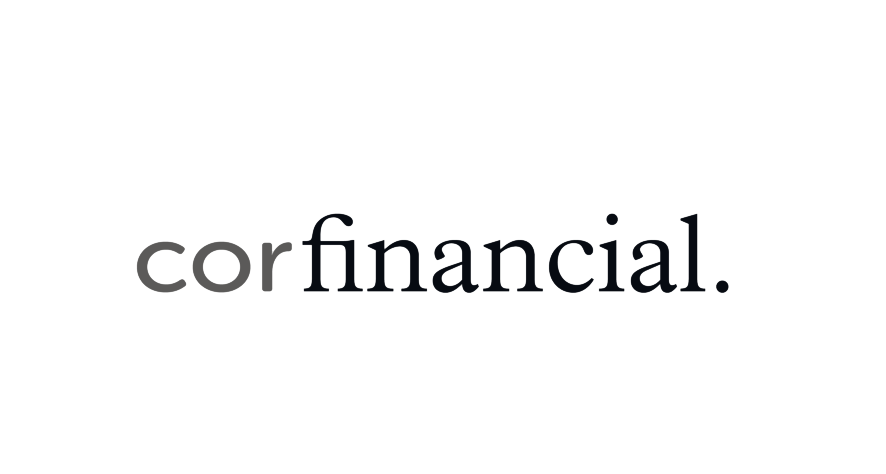Published

Clifford Bennett
Chief Economist at ACY
The two big positives at the moment. Fed result in, and a bounce that stalls. see more
- 05:00 am

- Nearly half (40%) of consumers wait for ecommerce refunds for between 3 to 5 days.
- This delay has negative implications for consumers: 28% have been directly impacted in their ability to pay for bills, rent and mortgage payments
- 28% of 18- to 24-year-olds impacted in their ability to pay for food
In the past year, more than £3.5 billion of UK consumer’s money has been held hostage in online refunds, according to new research from Trustly, the leading global payments platform for digital account-to-account transactions.
The data — which follows on from a year in which ecommerce growth grew five-fold — reveals that nearly half (40%) of respondents had to wait 3 to 5 working days for money from a refund to come back into their account. According to the study, the biggest driver of these refund requests came from clothes or accessories (50%), technology (20%) and home and garden (19%).
Of all consumers surveyed, nearly half (45%) agreed that slow refunds are making financial planning harder, meaning that the likelihood of taking out a loan or paying interest on debts increases.
In fact, nearly one third (28%) said that they have been directly impacted in their ability to pay for bills, rent and mortgage payments, as a result of having money tied up in online refunds.
The data also highlights the strain that slow refunds are having on the younger generation, with 29% of 18- to 24-year-olds admitting that they have been impacted in their ability to pay for food, compared to just 5% of those 55 years or older.
William McMullan, Director of eCommerce at Trustly, comments: “Online retail moves quickly, but unfortunately our financial systems can be quite slow. When consumers are denied fast refunds from merchants unnecessarily, it impacts on their ability to manage their expenditure. It’s not surprising to find that many are struggling”.
“We’re seeing increasing demand from consumers for debit payment options. Our research from earlier this year highlighted that 71% of UK shoppers now prefer to pay via debit. Consumers want the reassurance that their choice of payment method isn’t going to land them in debt. As consumers look to gain more control over their spending, debit payments facilitate this layer of flexibility with more convenient refunds, one click-payments, scheduled payments and a better customer experience. e-Tailers need to adapt and offer this flexibility. Relying on legacy systems and age-old processes will see merchants get left behind. Faster refunds get shoppers back online sooner and more often. That’s good for shoppers and good for retailers,” added McMullan.
There’s a clear demand for instant refund processes to be put into place. The data found that 63% of those surveyed are more likely to spend money with the same provider, if they receive a refund quickly.
Related News

Michael Moran
Senior Currency Strategist. at ACY
Stocks Rally; AUD, Risk FX Rally; EUR, GBP Dip Ahead of PMIs see more
- 02:00 am

Corfinancial®, a leading provider of specialist software and services to the financial services sector, announces today that after a highly competitive evaluation process the Department for International Trade (DIT), alongside the City of London Corporation, The Investment Association, and the Green Finance Institute, has selected BITA Risk® (part of the corfinancial group), and ten other UK-headquartered FinTech companies specialising in ESG and #sustainability to join a virtual trade delegation to an international climate summit in New York during September 2021.
The UK Department for International Trade is partnering with Climate Week NYC for a series of events concerning climate change from September 20th to 30th. The DIT will be showcasing BITA Risk’s award winning BITA WEALTH® software during the trade mission. BITA Wealth delivers a full spectrum of ESG Management capabilities to the advisor and investment manager.
A DIT spokesperson said: “These FinTechs have developed ground-breaking products and services that are already helping companies, investors, consumers, and regulators around the world overcome key challenges in ESG adoption.” Additionally, Daryl Roxburgh, President and Global Head of BITA Risk will be taking part in a roundtable discussion hosted by Rt Hon William Russell, Lord Mayor of London, on the future of financial services innovation as it applies to ESG. This roundtable will bring together FinTech experts from the UK and the US as well as ESG leaders in banking and asset management.
“ESG data, including carbon emissions, is key to investment management, whether viewed from client preference or investment risk and opportunity perspectives. Managing the complexities of this data and delivering bespoke, mass-customised solutions requires good FinTech. We are proud to be helping the transformation in investment transparency and are delighted that BITA Risk has been selected by the DIT for this historic event,” says Daryl Roxburgh.
Related News
- 03:00 am

Temenos and Vodeno to enable regulated and non-regulated entities to embed financial services into their customer journeys
Temenos (SIX: TEMN), the banking software company, Vodeno, a fully cloud-native BaaS provider and Aion Bank, a European licensed digital bank and credit institution, today announced a strategic collaboration to accelerate Banking as a Service (BaaS) deployment in Europe.
The first banking services to be launched combine The Temenos Banking Cloud with Vodeno's card management and payment processing services. This will enable banks and businesses across industries to broaden their portfolio of products offered to their customers by automating and embedding new payments and card services seamlessly in their customer journey. The collaboration across all three parties removes the complexities and regulatory overheads of deploying embedded financial services in Europe. Clients will benefit from faster time to market and the business agility to develop new customer propositions. Temenos and Vodeno are already engaged in several proof of concepts with banks and fintechs across Europe.
The Temenos Banking Cloud combines Temenos Transact and Temenos Infinity banking services which will connect via REST APIs to the VODENO Cloud Platform. Through the strategic alliance, clients will be able to instantly issue digital debit and credit cards for retail and business banking customers. Additionally, existing Temenos customers can benefit from financial services embedded in personalized customer journeys, delivered in real-time, at the right touchpoint with intelligent and contextual experiences.
More than 3,000 financial services institutions around the world leverage Temenos' modern, open, cloud technology. The Temenos Banking Cloud enables banks and businesses to consume, manage and maintain banking services in a secure, continually evolving, self-service platform while allowing them to develop new business models.
BaaS is emerging as a megatrend within financial services, where licensed banks integrate their digital banking services directly into the products of other non-financial businesses. Aion Bank and Vodeno - both backed by the global growth investor, Warburg Pincus LLC - were created with this opportunity in mind. The BaaS market in Europe is currently estimated at over USD 3 billion. BaaS functionality is attractive to banks, fintechs, non-banks and specialized BaaS providers, who can now use the combined power of The Temenos Banking Cloud and Vodeno's technology to create, deploy, consume or monetize new banking services. Temenos, Aion and Vodeno can now offer any brand digital banking services to their customers, such as mobile bank accounts, debit or credit cards and payment services, without the need to have their own banking license.
Max Chuard, Chief Executive Officer, Temenos said: "Working with Vodeno and Aion Bank, we offer an open cloud banking platform designed for business agility and massive scale to banks, fintechs and established brands that wish to offer embedded financial services and drive ultimate customer experiences. We chose Vodeno and Aion Bank to establish this new channel to market for Temenos, which will help us capture the BaaS market opportunity in Europe. The Temenos Banking Cloud combined with Vodeno's technology and Aion Bank's proposition will help banks and non-banks to create, deploy, consume and monetize new banking services."
Wojciech Sobieraj, Chief Executive Officer, Vodeno, said: “When we created Vodeno, our vision was to enable 'Banking as a Service' to any regulated and non-regulated institution. Through this strategic collaboration with Temenos and Aion Bank, we will offer banks, fintechs and brands the richest BaaS proposition in the market. Simply put, the ease in which we can integrate cards and domestic payments, as well as other banking services, will power digital transformation to the next level in Europe."
Peter Deming, Managing Director and Head of Financial Services in Europe, Warburg Pincus, said: "Our excitement for the 'Banking as a Service' opportunity in Europe continues to build as more companies, banks and brands seek to improve their customer experiences through embedded finance. The collaboration of Temenos with Vodeno and Aion Bank to jointly address this market underlines the companies' ambition to be the de facto partners for any regulated or non-regulated institution seeking these embedded financial services."
Related News
- 07:00 am

By Jason Tooley, Vice President EMEA, Dynatrace
The drive for banking transformation is stronger than ever, as the pandemic fast-tracked the shift to digital services. Consumers are increasingly leaving cash behind in favour of contactless payments, and using online or mobile banking to manage their finances. Even those who were more wary of these services before the pandemic have taken the plunge and seen the benefits of going digital. Highlighting the extent of this, research from London-based fintech Nucoro found that during the first month of the UK lockdown, more than six million people downloaded a mobile banking app for the first time.
Banking executives must now identify how they can meet the rising demand for digital services, while sustaining the value of in-branch experiences. The answer lies in creating a hybrid experience that unfolds as a single, consistent journey as customers traverse physical and digital channels. To achieve this, banks need to ramp up and realign their technology strategy to deliver a full-scale business transformation, based on three core pillars.
Pillar 1: Put the experience at the centre
Banks are serving a wider market of digital consumers than they’ve ever encountered before. These customers are all at varying levels of digital maturity, with their own unique needs and expectations. As a result, there’s no one-size-fits all approach. Teams are under pressure to create new functionality and improve the usability of online and mobile banking across all touchpoints to deliver more relevant and innovative services. However, personalisation alone isn’t enough; it’s customer experience that matters. As customers increasingly engage in omnichannel banking journeys, their expectations for a seamless, high-quality operational experience are rising in tandem.
For banks, the challenge is identifying how they can create an operational foundation to ensure great customer experiences across all channels. Many have seen that traditional strategies focused on front-end transformation are ill-suited to ensuring seamless omnichannel experiences. They are now placing equal emphasis on back-end transformation and operational excellence, to ensure they have a robust foundation with the agility to match their digital agenda. Re-platforming is key, so banks are migrating an increasing number of services from legacy infrastructure to cloud-native architectures. As this continues, the ability to maintain observability across hybrid, multicloud environments will be critical to ensuring seamless customer experiences.
Pillar 2: Refocus operations on customer value
Customer value should be core to everything the bank does to scale up digital innovation and bring new capabilities and experiences to market. To enable this, banking leaders need to embrace a more collaborative operational structure. This is best supported by small, flexible, and more autonomous teams created from the combination of IT, product development and line of business or service lines focused on a particular customer need, product, or service.
The responsibility for creating customer value belongs to all parties, so it’s critical to avoid creating silos to ensure performance is measured consistently. DevOps, cloud, and classic IT operational support functions need to align around the customer and their operational experience, without impacting the pace of digital change required by the business. That’s why there’s growing interest in driving more collaboration between teams, and increasing automation through AIOps, which requires technology and organisational transformation to achieve success.
This is changing the way banks operate, as the business plays a more central role in driving the technology innovation agenda. However, it’s also creating the need for more teams to understand governance and operational processes. The way teams combine their expertise determines how efficiently services can be operationalised and how customers view operational support. In contrast, operational service requirements ensure the growth in digital service complexity doesn’t require bigger teams or unforeseen costs. To enable this, banking leaders must equip their teams with data-driven insights, with service context and increased automation, based on artificial intelligence. This enables everyone to work towards service level objectives (SLOs) relevant to customers and aligned to operational excellence. Teams can therefore collaborate more effectively by identifying where their efforts can help create better experiences for customers and maximise value for the bank.
Pillar 3: Embrace an ecosystem approach
There’s a huge amount of innovation being driven by Fintech companies, which have been purpose-built for the era of digital banking. Rather than seeing these companies as competitors, traditional banks have a far greater opportunity to expand their market if they look to partner and integrate with their offerings. That realisation, along with the advent of open banking, has seen growing use of APIs. This has enabled banks to explore new ecosystem-driven business models and expand their services into new areas at far greater speed and scale, by leveraging third-party capabilities to create better customer experiences.
Banks are also extending that mindset to integrate with other next-gen technology capabilities. For example, by integrating with digital decisioning software, banks can automate processes such as loan application approvals. Connecting with natural language processing (NLP) solutions can enable customers to self-authenticate via telephone banking to drive efficiency and frictionless experiences. This is seeing a further re-platforming of banks towards API-driven architectures that marry digital experience, digital operations, and digital innovation. However, it also adds to the complexity increases driven by multicloud environments and cloud-based services. Automatic and AI-powered observability is therefore increasingly critical to scale operational capabilities and deliver on the promise of AIOps, accelerating innovation and delivering seamless omnichannel banking experiences.
The future of banking
Banks are undergoing a full-scale business transformation underpinned by digital transformation. As this continues and technology becomes increasingly critical to the customer experience, banks need to ensure they have a robust digital strategy in place. By basing their strategy on these three core pillars, banking leaders will have a far stronger foundation to ensure their offerings are designed and built in a consistent, aligned, integrated, and customer-centric way. Ultimately, that will be key to enriching their proposition in the future, by providing personalised financial services whenever and wherever they are needed, and great customer experiences in the process.
Related News
- 06:00 am

- Antony Stephen will join Barclays as the CEO of the bank’s point-of-sale finance business, Barclays Partner Finance, on Monday 4 October
- Antony has over 25 years of experience in payments and financial services, including his most recent role as Head of Amazon Payments Europe
- As CEO, Antony will focus on scaling the point-of-sale finance business in the UK, and providing senior leadership to Barclays Cubed, Barclays’ next-generation commerce platform
Barclays has announced that Antony Stephen will be joining the Group on Monday 4 October 2021, as the new Chief Executive Officer (CEO) for the Barclays Partner Finance (BPF) business, and its legal entity, Clydesdale Financial Services Ltd (CFSL).
Antony joins from Amazon and brings over 25 years of experience in payments and financial services. Through his most recent role as Head of Amazon Payments Europe, he led a $50+ billion portfolio of payment products including credit cards, instalment loans and a financial services marketplace.
As CEO of Barclays Partner Finance, Antony will report to Ruchir Rodrigues, Head of Barclays Cubed & Consumer Bank Europe, with a focus on growing the point-of-sale finance business in the UK. Antony will also provide senior leadership to Barclays Cubed, Barclays’ next-generation commerce platform, designed to create value for consumers and merchants through the payments ecosystem.
Barclays Partner Finance is one of the UK's leading providers of point-of-sale finance and regulated BNPL lending, working with world-class retailers to enable consumers to purchase products and spread the cost in a responsible and transparent way.
Antony Stephen said: “This is an incredibly exciting time for point of sale finance – while the core business model has existed for a long time, it has surged in popularity and prominence in recent years, thanks to advancements in technology and changes in customer behaviour. With its unrivalled network of both consumers and major retailers, Barclays recognises the fantastic opportunity it has to lead the market, and I’m thrilled to be joining the bank at this pivotal moment.”
Welcoming Antony’s appointment, Ruchir Rodrigues commented: “I am delighted that Antony is joining Barclays to lead our point-of-sale finance business, and that we’re able to attract talent of his calibre. Antony’s global experience with an industry-leading firm like Amazon and his passion for customer centricity will be invaluable in driving this business forward. His vision and leadership will add immense value to the team as we continue to create tangible value for the consumers and merchants that we serve”.
Barclays Cubed
Barclays Cubed is a next-generation commerce platform that uses sophisticated digital and data technology to create a value-exchange ecosystem between the bank’s millions of digitally-engaged customers and thousands of SME and corporate clients. Through its innovative services, Barclays Cubed is re-imagining the end-to-end shopping experience, enabling secure, frictionless and seamless interactions between consumers and merchants. Barclays Cubed forms a key part of the bank’s £900m income growth opportunity in payments, announced earlier this year at Barclays’ Q1 2021 results.
Related News
- 05:00 am

- Demonstrates TISAtech’s ability to accelerate the adoption of validated, new technology providers
- Contengo joined the TISAtech community in December 2020
- Further showcasing TISAtech’s commitment to driving innovation and positive change across the financial services arena
TISA appoints Contengo to deliver a client experience modernisation programme and the development of a new service offering. Contengo is an expert software and consulting firm providing strategic advisory services and specialist software solutions to the wealth management industry. The company joined the TISAtech Fintech community in December 2020.
Alongside most across the global financial services industry, TISA is on a mission to inject innovation and positive change through the application of modern technologies to its rapidly expanding suite of business-critical services. To support these goals, TISA has embarked on an ambitious transformation programme which involves modernising the capabilities of an existing, industry-leading service and creating a highly specialised, new web-based offering that includes a fully automated client portal.
According to Danielle Barrass, Operations Manager at TISA. "Our overall objective is to ensure our users have access to a modern range of efficient, cost-effective, low-risk services that meet the changing needs of the wealth management community. To do this we needed to find an expert partner with specialist knowledge to help us. We identified several potential vendors, including TISAtech FinTech members, of which Contengo was one. Following a thorough evaluation process, it soon became clear Contengo had the precise blend of proven software development skills, approach, and sector experience we were looking for."
Danielle continued. "These are high-profile projects with aggressive delivery deadlines, and I am delighted to report that Contengo has more than risen to the challenge. Throughout the programme the team has consistently demonstrated deep industry knowledge; they are collaborative, highly responsive with a refreshing can-do approach. It's been a great experience so far, and I am looking forward to the successful delivery of these strategic initiatives, and the benefits they will provide for the community we serve."
Gary Bond, CEO at TISAtech, concluded. "The collaboration with Contengo is helping TISA to significantly raise the bar across the wealth management industry by providing modern, vastly improved service capabilities that will help to revolutionise the way the business operates. In addition, I am particularly excited that our chosen partner was a member of the TISAtech community. This is a perfect example of TISAtech's ability to empower accelerated, positive change in action and is a win-win situation for everyone involved. Stay tuned; there is more to come."
Related News
- 03:00 am

Andres Garcia-Amaya, CEO of Zoe Financial, was announced as a judge for Morningstar's FinTech of the Year 2021 Competition. Zoe Financial, a next-generation digital marketplace that connects clients with highly vetted fiduciary financial advisors, won Morningstar's Fintech of the Year in 2019.
"It was a milestone for Zoe to win FinTech of the Year in 2019, so we couldn't be more excited to make that jump from participants to judges this year," stated Garcia-Amaya.
Morningstar is an industry leader, and the FinTech competition is an opportunity to uncover the most innovative startups that push the industry forward.
"We're honored to support Morningstar's mission to empower and drive investor success, maintain advisors as key partners, and raise the bar for the modern financial advisor. Being here is a step in the right direction as we continue empowering Americans to make better and more mindful financial decisions," said Andres Garcia-Amaya.
Morningstar operates on two important core values: independence and transparency. Zoe's values and mission align intrinsically, as their goal is to match clients with independent financial advisors that have transparent and aligned incentives.
Related News
- 06:00 am

CUSIP Global Services and SIX deliver improved technology capabilities for the ASB
The Association of National Numbering Agencies (ANNA), a global association dedicated to the support of efficient capital markets through the use of widely embraced ISO standards, today announced the successful release of an improved and modernised ANNA Service Bureau (ASB). Among the key technology and infrastructure enhancements that will benefit both numbering agencies and ASB clients alike are: streamlined data processing, improved communication between contributors, a new look and feel for the user interface and additional data elements related to the 2020 revision of the ISIN ISO 6166 standard.
The ASB, originally established in 2001, is operated jointly by CUSIP Global Services (CGS) and SIX to collect and share data on three critical ISO standards related to financial instruments: International Securities Identification Numbers (ISINs), Classification of Financial Instrument codes (CFIs), and Financial Instrument Short Names (FISNs). Operating as a central hub of financial instrument identifier information, the ASB receives and consolidates ISINs, FISNs and CFIs and associated data contributed by a federated group of 117 National Numbering Agencies (NNAs), providing coverage across more than 200 jurisdictions. In addition to making this information available to NNAs, the ASB offers a free ISIN lookup as well as subscription data services for market participants.
There are two planned phases of enhancements to the ASB. The first phase, which was rolled out on 18 September 2021, includes infrastructure developments to the ASB service. This will be followed by a further phase in 2022 to introduce new data elements resulting from the 2020 revision of the ISO 6166 ISIN standard, including the associated data validations, as well as incorporation into the relevant ISIN look-up and subscription services. Future phases will build on the current enhancements, bringing more efficiency and transparency to the global financial markets, which have come to depend on the ISIN standard (ISO 6166) to trade, clear and settle a wide variety of financial instruments.
Some of the key changes include the migration of the platform to a cloud-based infrastructure (with dual instances for redundancy purposes) allowing for reduced latency and additional security. A newly designed user interface will be introduced with an integrated data quality dashboard, a data challenge ticketing system and enhanced search and download capabilities. This will allow for more streamlined data processing, increased transparency and improved communication between the NNA contributors, and the ability to undertake improved data analytics. An additional subscription service will also become available, giving users the ability to extract customised data for a specific portfolio of financial instruments.
Stephan Dreyer, MD of ANNA, said, “We are delighted with these technology enhancements to the ASB being delivered by the ASB operators, CUSIP Global Services and SIX. The ASB provides a core service to all the NNAs, serving as a central repository of ISIN and other standards data. When maintaining data standards globally, with more and more users using the ASB, these enhancements to the service will give NNAs an improved user experience and more effective tools for data management, as well as the ability to deliver high quality reference data to market participants.”
“This significant upgrade in the ASB’s underlying technology and data quality assurance capabilities would not have been possible without close collaboration between a group of industry leaders who are so committed to improving financial markets infrastructure and we are pleased to be a part of that team," said Scott Preiss, Managing Director, Global Head of CUSIP Global Services. "As global markets and associated product offerings become more complex, and transaction volumes and associated risk continue to rise, the seamless communication and improved data sharing of the ANNA Service Bureau will better serve market participants with distinction for years to come.”
“The ANNA Service Bureau continues to represent a beacon of reliability and data integrity,” said Marion Leslie, Head Financial Information and Executive Board Member, SIX. “We are proud of our continued, successful collaboration with our partners at ANNA, CUSIP Global Services and the global numbering agencies to deliver critical data solutions that drive the global markets.”









